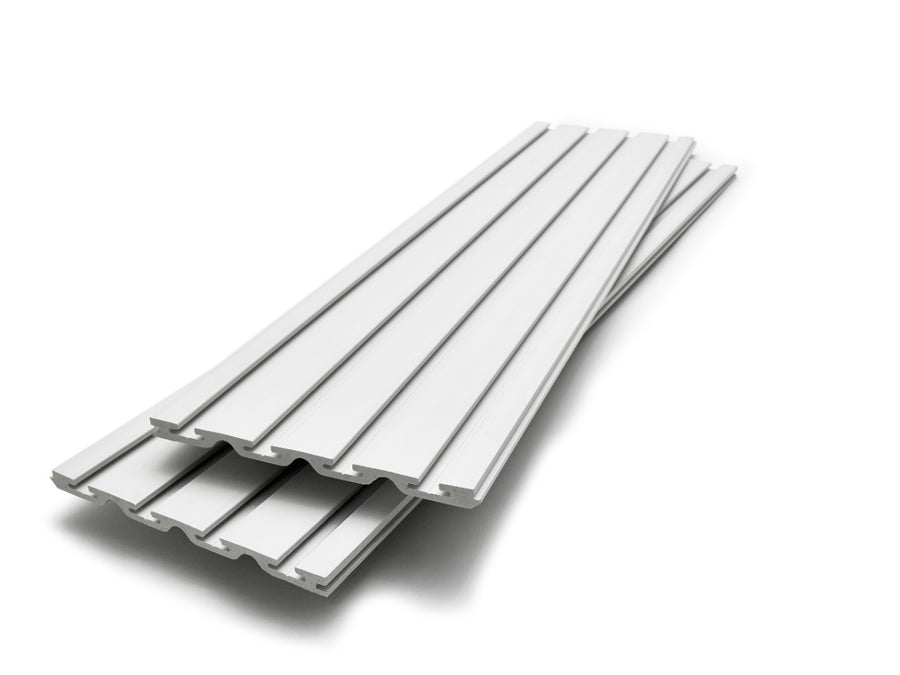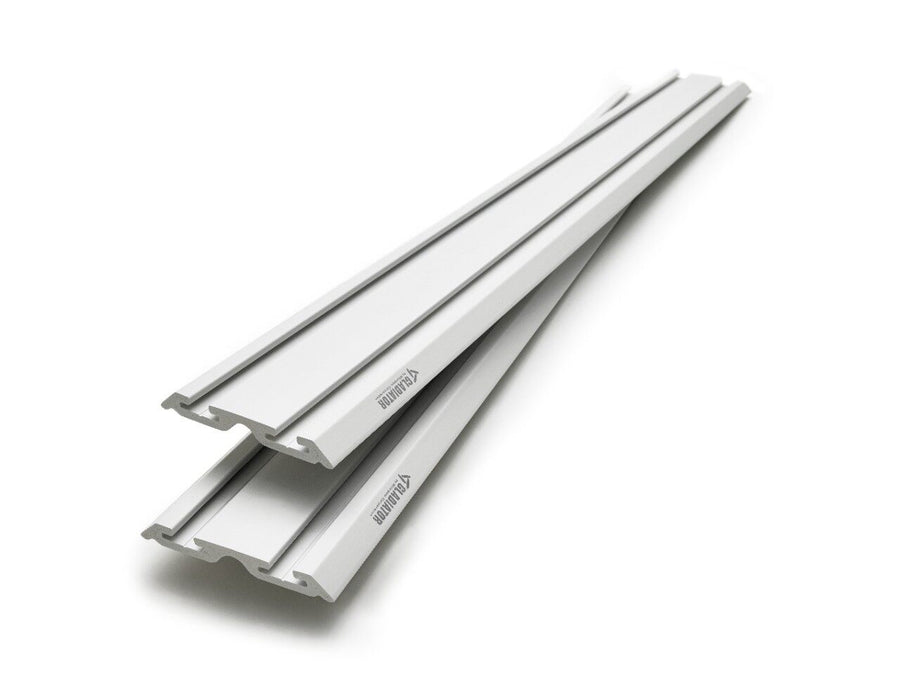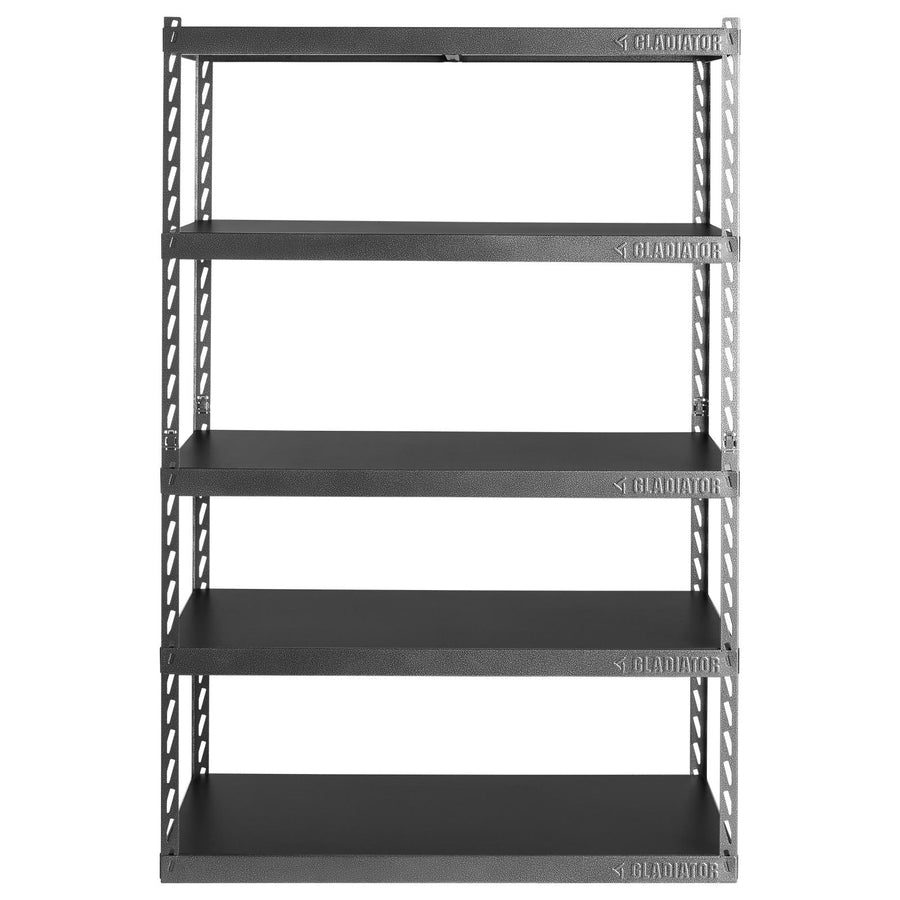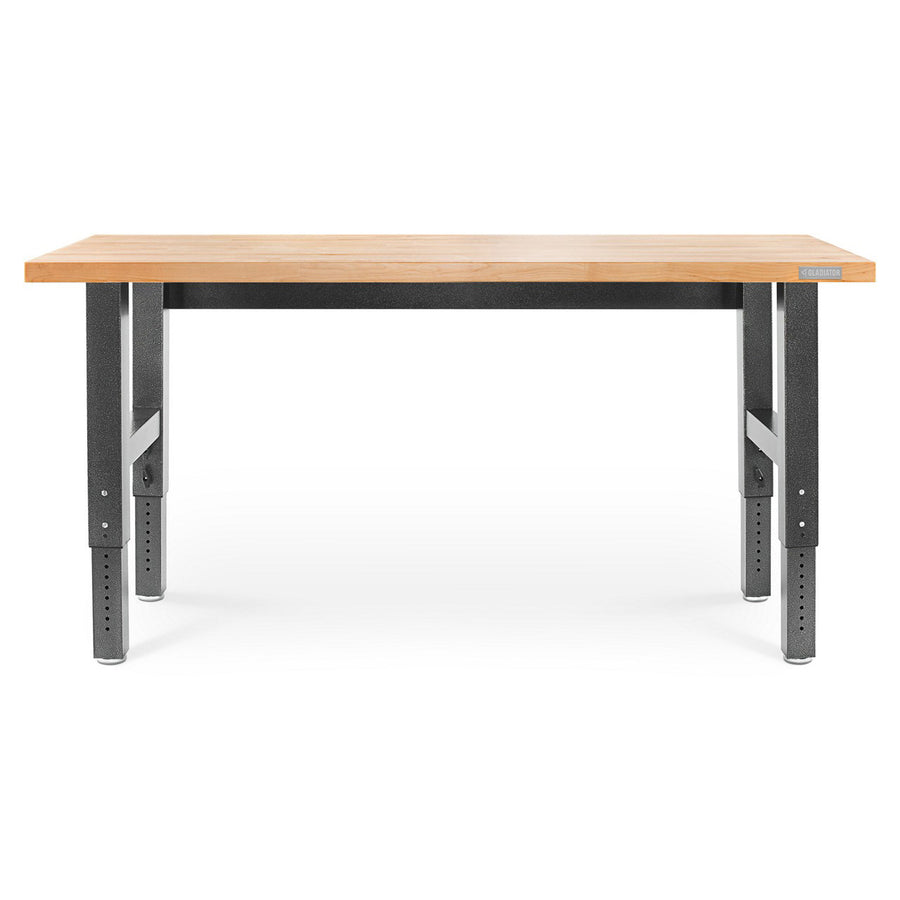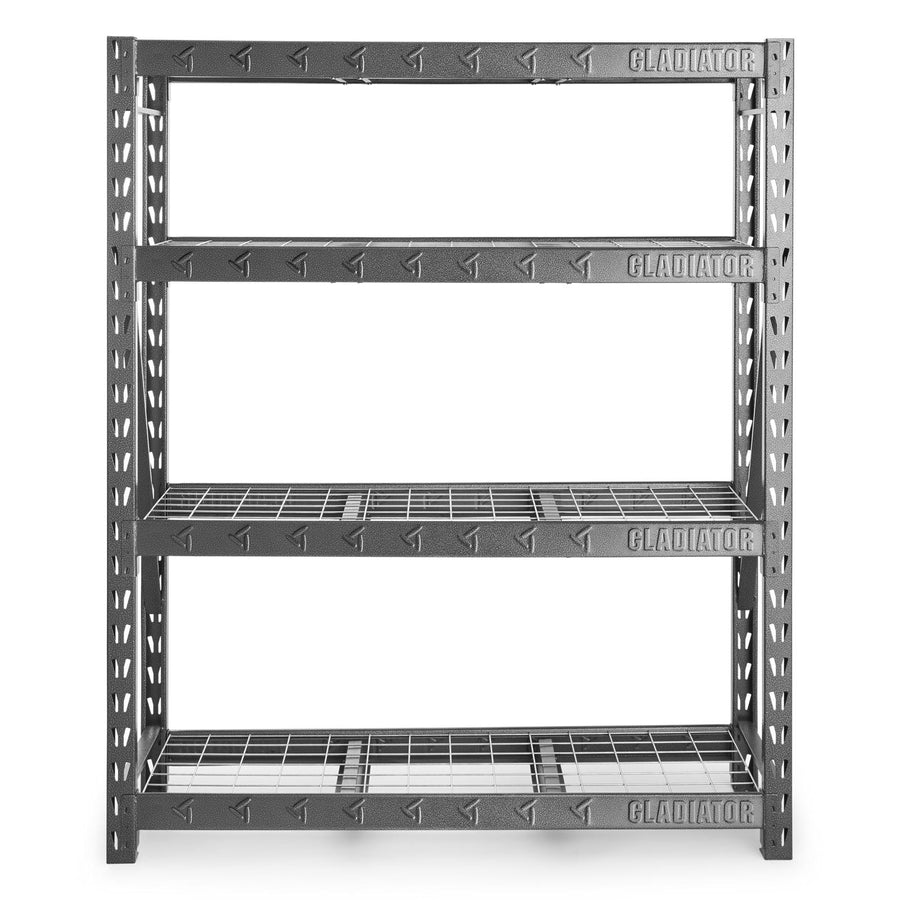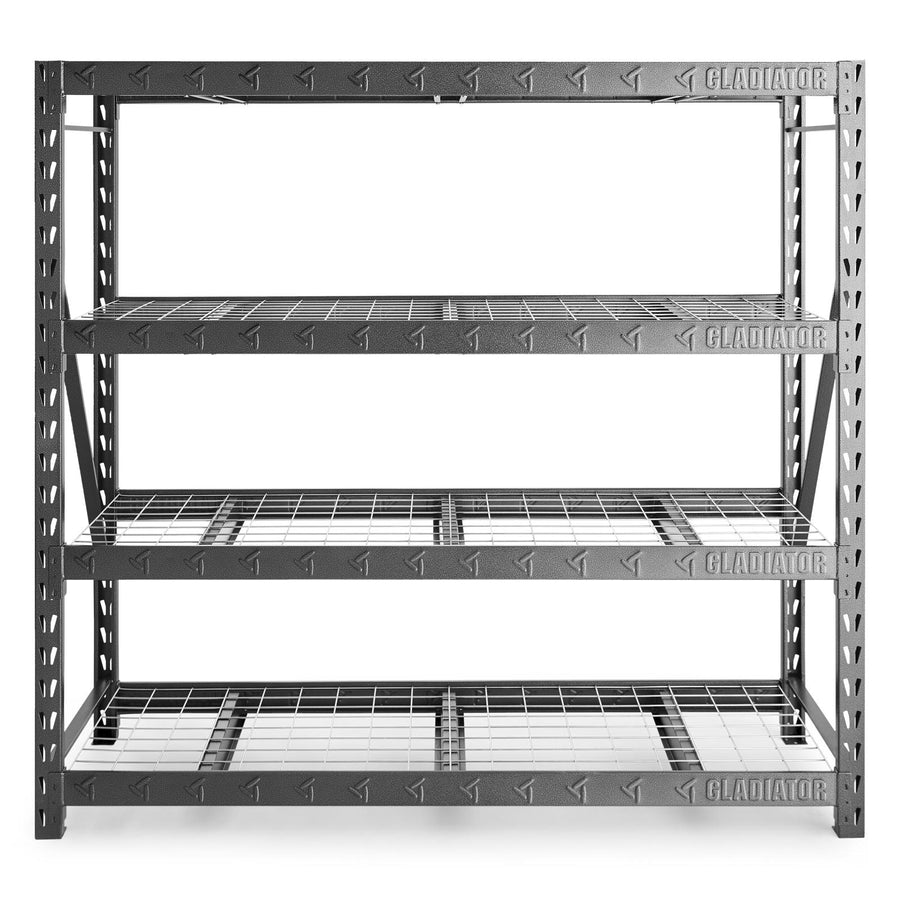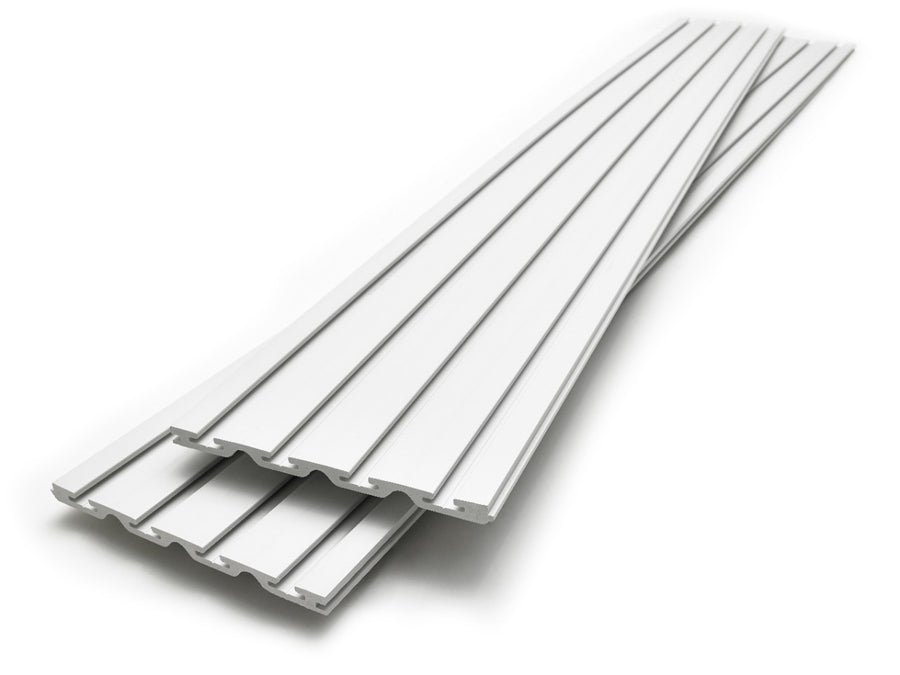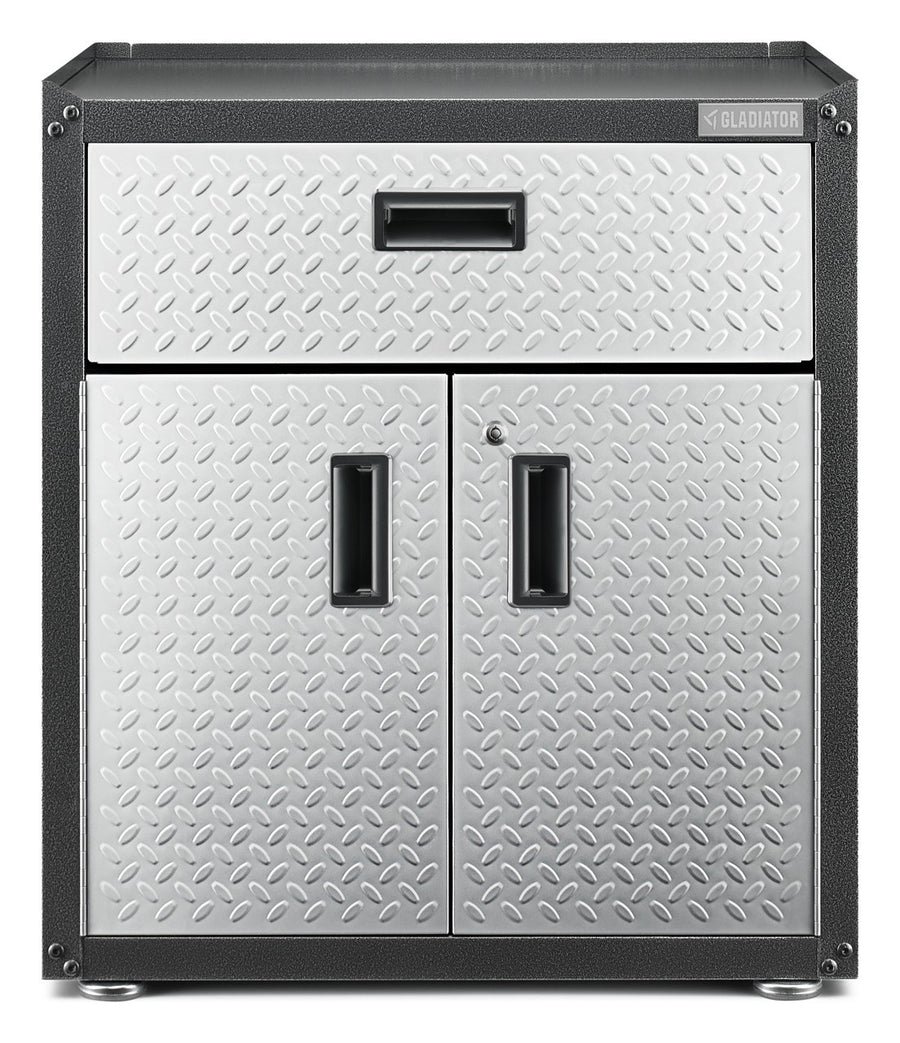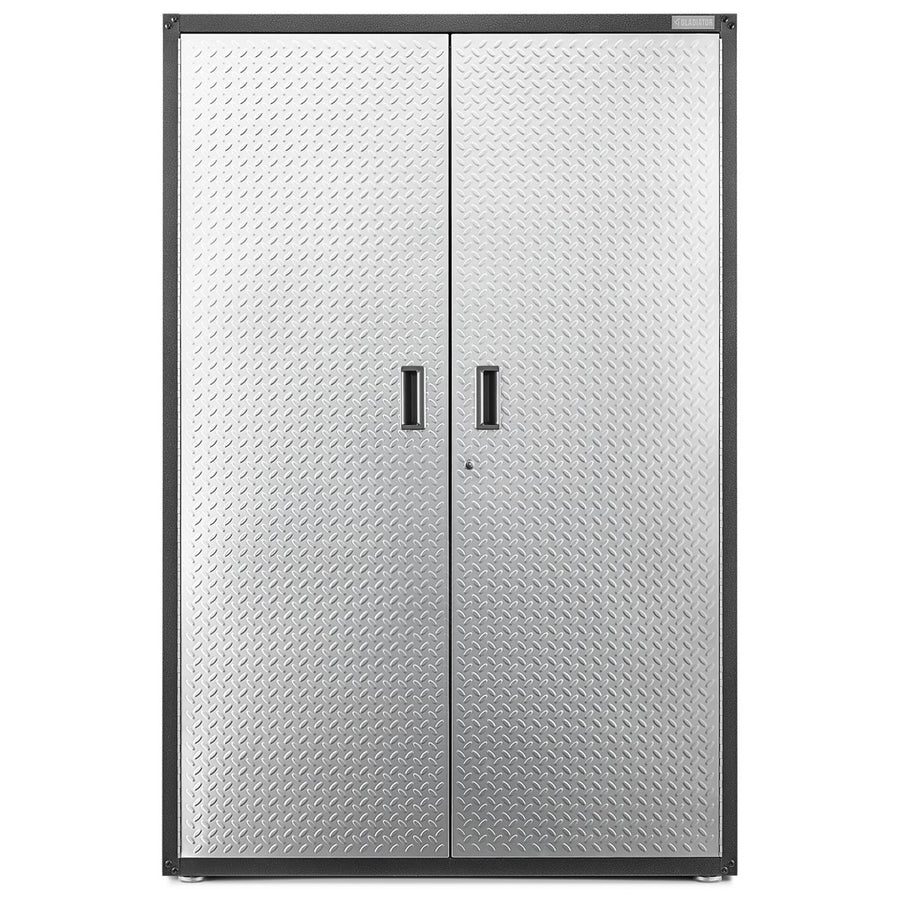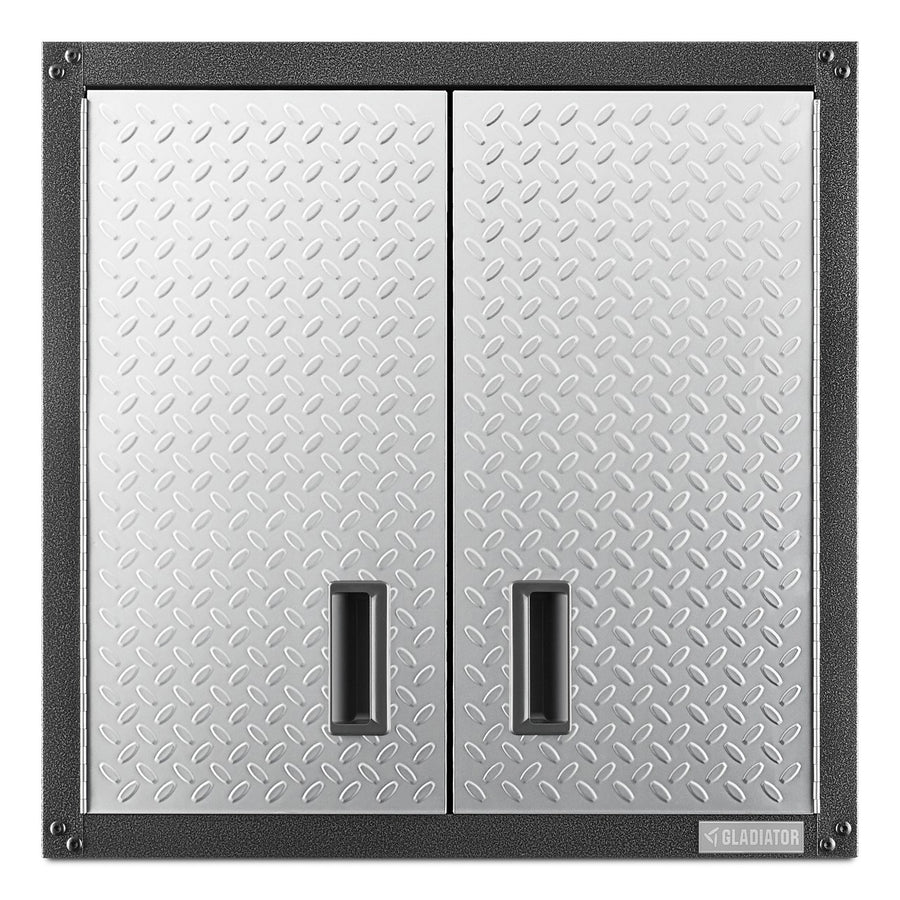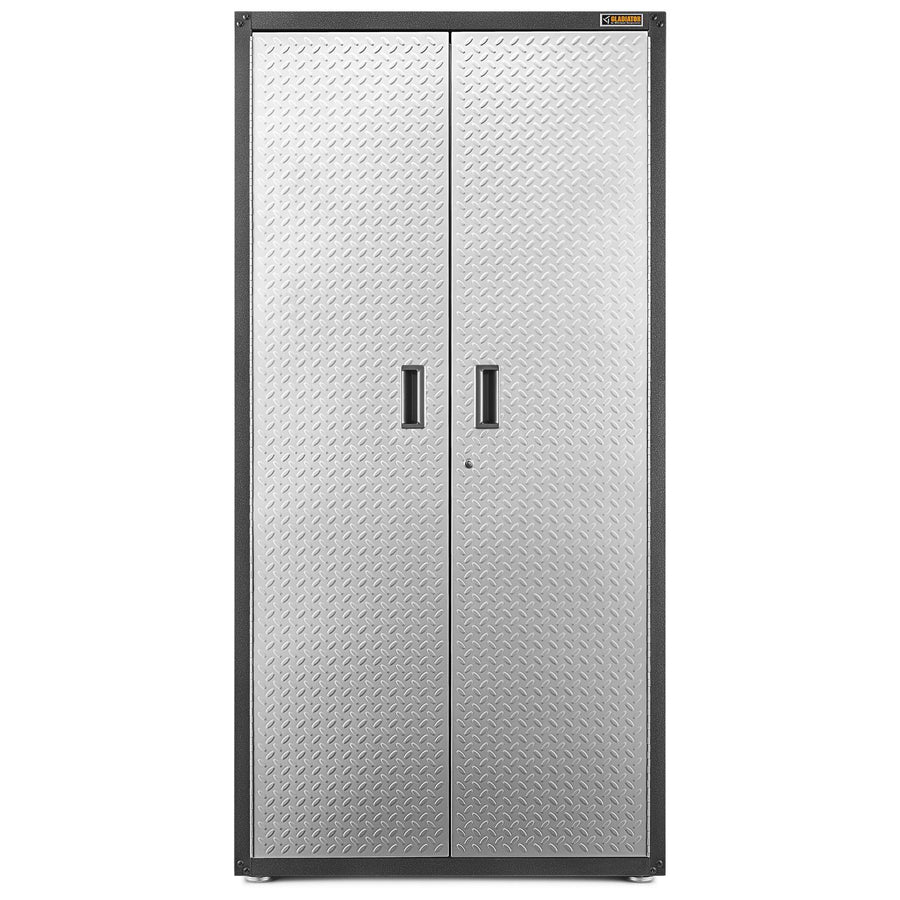Choosing the right garage workbench for your workspace depends on several factors, including size, the nature of your projects, budget constraints and more. Read our guide to discover the ideal workbench for your needs and workspace.


WHAT ARE THE DIFFERENT TYPES OF WORKBENCHES?
There are many different types of workbenches that can be used in and out of the garage. Some of the most popular types include adjustable height, modular and mobile workstations. There are also benches designed specifically for different types of projects: metalworking benches cater to heavier tasks, while woodworking benches are tailored for projects involving wood. Wall-mounted workbenches are another option and can often fold down when not in use, helping save space.
Gladiator brand offers adjustable height, modular and mobile workbenches along with a wall-mounted foldable option for both storage and a functional work surface when needed. Adjustable height workbenches can help provide the proper working height for any project—big or small, with a range of 31.5 inches to 42 inches tall and four to eight feet wide. Modular workbenches from Gladiator brand can support up to 1500 pounds of distributed weight and come with a 1-1/2" thick solid hardwood top. Gladiator® mobile workbenches can hold up to 680 pounds total and feature four 360° swivel casters that lock in place to help keep the workstation steady.
Gladiator® workbenches feature heavy duty, welded steel legs and a hardwood top to help with a variety of projects.
What type of workbench is best for the garage, office or craft room?
It depends. You’ll want to consider your budget, space and usage, among other factors. Keep reading to help determine the right workbench for you.


THINGS TO CONSIDER WHEN BUYING WORKBENCHES
Size
The size of your workbench may depend on your height and what types of projects you are completing. Projects involving larger or multiple materials may require a more expansive workspace, while simpler projects can be accomplished on a smaller surface. A general guide is that your workbench should only be as long as you can reach, to avoid leaning over your workspace.
Height
Generally, a common height for a workbench is between 30-39 inches tall. However, heights may vary between the nature of the project you are completing and how tall you are. When working with hand tools, a height of around 30-34 inches is recommended to give you leverage without hunching over too much. When working with power tools, a height of around 36-39 inches is recommended to allow you to comfortably use tools while maintaining a good posture. You may also decide to choose an adjustable height workbench to modify the height depending on what projects you are completing. Gladiator® adjustable height workbenches can adjust to meet ADA height requirements as well.
Material
The most common materials used for workbenches are typically steel and a variety of woods. Gladiator® workbenches are made with a mix of the two materials, with solid hardwood tops and heavy duty, welded steel legs for stability.
Surface
There are a variety of surface options to choose from. Some of the most common are wood, steel, stainless steel, plastic/laminate and shop top. Wood surfaces provide a strong base for projects and are often ideal for all-purpose work, while steel surfaces offer durability and strength for heavy duty projects. Stainless steel surfaces allow for easy cleaning and disinfection and are often used in food preparation. Shop top surfaces are designed to prevent static buildup and are resistant to warping or splitting. If you are looking for a cheaper, yet durable option, plastic/laminate surfaces are lightweight and non-conductive, making it an affordable choice for working on electrical appliances. Gladiator® garage workbenches feature hardwood tops with a UV cured protective coating to deliver a solid, durable work surface.
Stability and Weight Capacity
Weight capacity depends on what type of projects you plan on completing. It’s important to get the right workbench for your projects, as a lower weight capacity workbench can sag if it holds too much weight, leading to an unstable work surface. Generally, there are three common groupings for weight capacity: standard, heavy duty and extra heavy duty. Standard weight capacities are usually around 750 to 1000 lbs and are ideal for everyday projects. Heavy duty workbenches have a weight capacity of around 5000 lbs and extra heavy duty workbenches have a weight capacity of 5-10 tons or 10,000 to 20,000 lbs.
Gladiator® weight capacities range from 680 lbs to 3000 lbs, placing their workbench capacity between standard and heavy duty. Standard capacities can be helpful for most projects while heavy duty workbenches can support multiple bulky power tools and materials.
Storage and Organization
You can easily add additional storage to any workbench. Wall organizing systems enhance storage above by accommodating baskets, hooks, and various accessories, streamlining workspace organization. Gladiator brand offers several wall organizing accessories to help store your gear, including bike hooks, boot racks, golf caddies and more.
In addition to wall organization systems, some workbenches may be tall or wide enough to add tool storage below them. This can help keep your workspace neat and free of tools when not in use. Gladiator brand offers tool storage with wheels to easily slide under workbenches and out of the way when more room is required.
Accessories and Features
Accessories and features can help elevate your workbench. Gladiator brand offers power strips and garage stools specifically for garage workbenches to complement your workspace.
Portability and Mobility
Casters or wheels can provide easy maneuverability throughout your workspace. Gladiator brand offers a 3’ Wide Mobile Workstation that comes with four 360° swivel casters for total mobility.
Folding garage workbenches can be tucked away when not needed and are often wall-mounted to help save space.
Assembly
When assembling your workbench, be sure to give yourself space to build. Each product’s assembly is different, so you’ll want to refer to your owner’s manual for more specific information.
Power Outlets
A power outlet or USB port can be a helpful addition to any garage workbench. This means you can place your workbench anywhere in the garage and not worry about having an outlet nearby. Gladiator brand offers a 6' Wide 9-Outlet Workbench Powerstrip, sold separately, which is compatible with both six foot and eight foot workbenches. You may also choose a workbench with integrated cable management holes to help organize your workstation and keep wires from getting tangled.
Budget
Bigger workbenches made of premium materials will cost more than smaller or cheaper quality workbenches. However, you will have to consider durability and quality as well. While a more premium workbench may cost more, it will often last longer than its cheaper counterparts. Gladiator® workbenches are built with durability and longevity in mind, with features like heavy duty welded steel legs and solid hardwood tops. Most products also carry a Limited Lifetime or a 10-Year Limited warranty, while certain products hold a 1-Year Limited warranty.

FREQUENTLY ASKED QUESTIONS
Is It Cheaper To Buy A Workbench Or Build One?
If you have the tools, experience and time necessary to build a workbench, it may be cheaper, however, you will need to consider the materials needed and the durability. The cost of building a workbench depends on the materials you are using, which may vary in price depending on where you are located. Additionally, if you build a workbench that may not last as long as a ready-made workbench, you must also consider the cost of replacing.
How Much Weight Can A Workbench Hold?
Standard workbenches can usually hold around 750-1000 lbs, while heavy duty workbenches can hold up to 5000 lbs. Extra heavy duty workbenches can hold even more weight, with a capacity of around 10,000-20,000 lbs.
How Do You Organize a Workbench?
Adding accessories can help organize your workbench. Hooks, baskets and bins are easy to add to your workspace and can help keep it neat. You can also add GearWall® Panels or GearTrack® Channels for additional wall storage space.
What Should I Finish My Workbench With?
Garage workbench finishes depend on your preference. You may not need a sealant, however, you can choose to add an oil-based gloss polyurethane for a shiny finish. You can add a drying oil or wax to help make project cleanups easier. Gladiator® workbenches do not require any coatings or sealants as the wood tops are UV cured and the hammered granite finish is powder coated for durability.



